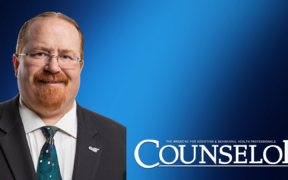Knowledge: “I will . . .” list record underline state define arrange name relate describe tell reproduce memorize recall repeat recognize label select Comprehension: “I will . . .” explain describe report translate express ...

In my previous column (April 2019), I wrote about the various factors that affect clients’ adherence to treatment. In this second and final installment on adherence, I will present ways to improve and foster clients’ ...

"Having been involved in the passage of HR 6 and in the anti-patient-brokering laws in California, I found that one thing dawned on me: ethics is not a passive process."

Financial incentives for quality improvement and timely performance feedback to treatment agencies are two potentially effective strategies for improving treatment quality. Until now, treatment for individuals with substance use disorders (SUDs) has been the focus ...

For close to ten years I have been blessed by living in the heart of the beautiful Sonoran Desert just outside of Tucson. Almost every morning my wife and I start the day with a ...

Evidence indicates that client engagement is among the most important evidence-based practices (Duncan, Miller, & Sparks, 2004). You could be a master therapist with expertise in motivational interviewing (MI), cognitive behavioral therapy (CBT), mindfulness meditation, ...

“We believe you deserve to heal from addiction too.” from brochure of St. Joseph’s Addiction Treatment & Recovery Centers’ Family Program, Saranac Lake, New York When we talk about advances in treatment, what are we ...

According to ICANotes, an electronic health records (EHR) company, “Psychiatrists, psychologists, mental health counselors, social workers, and other behavioral health professionals use treatment planning as a tool to effectively treat patients. Without a clear plan ...

“Arthur is an addict, a loving flawed parent, a kind soul, and . . . stuck. Should . . . can I keep trying?” asks Nancy, his wife. I frequently have either individuals or couples ...

Dear Dr. Toni, I’m a woman in my late fifties. I’ve been a psychotherapist for twenty years. I primarily use a process for trauma in working with addicts called “brainspotting.” I’ve found it to be ...


 Counselor Magazine is the official publication of the California Association of Addiction Programs and Professionals (CCAPP). Counselor offers online continuing education, article archives, subscription deals, and article submission guidelines. It has been serving the addiction field for more than thirty years.
Counselor Magazine is the official publication of the California Association of Addiction Programs and Professionals (CCAPP). Counselor offers online continuing education, article archives, subscription deals, and article submission guidelines. It has been serving the addiction field for more than thirty years.